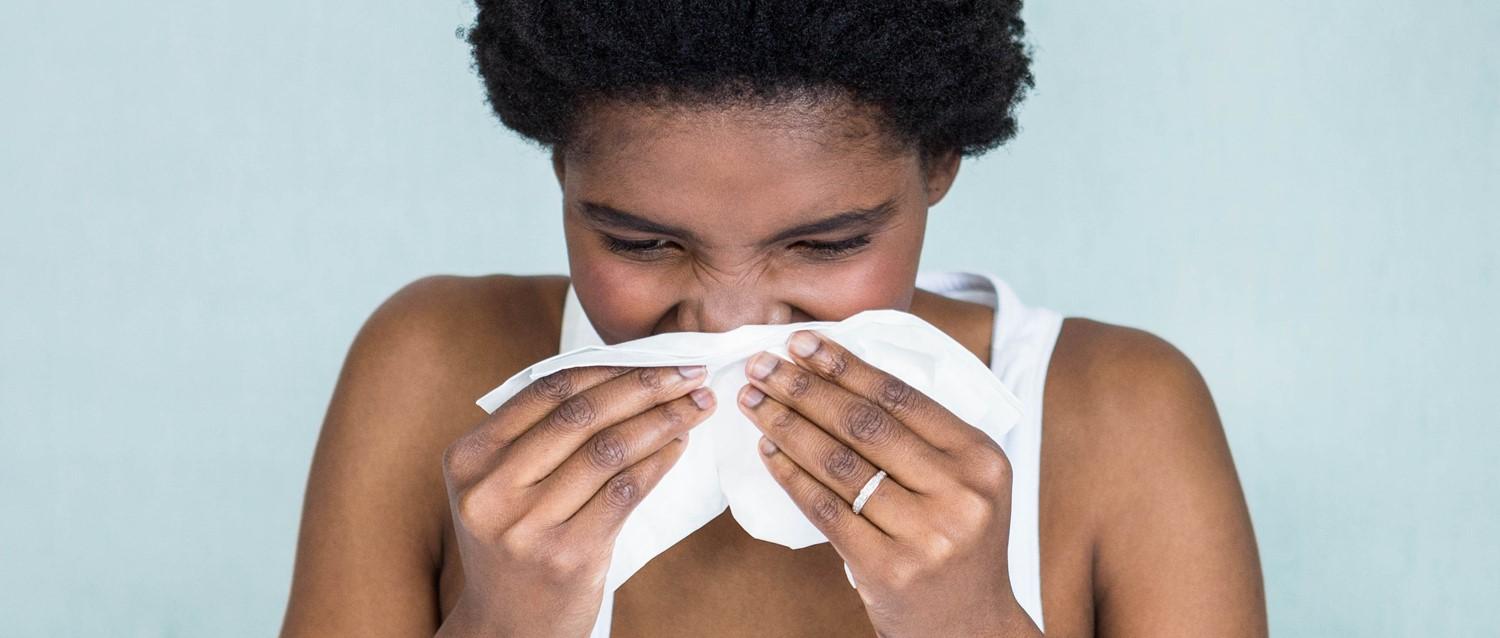
Can pregnancy make you more sensitive to hay fever?
Peer reviewed by Dr Krishna Vakharia, MRCGPLast updated by Emily Jane BashforthLast updated 29 Jun 2022
Meets Patient’s editorial guidelines
- DownloadDownload
- Share
- Language
- Discussion
Hay fever (technically known as allergic rhinitis) is a very common condition and is usually not a cause for concern. However, it can cause discomfort and distress, especially if you are pregnant and already battling other symptoms that make you feel uncomfortable.
In this article:
Continue reading below
Hay fever when pregnant
Pregnancy can be a turbulent time for expectant parents. Symptoms such as morning sickness, fatigue, and mood swings can flare periodically making it exhausting to manage. It tends to be a rollercoaster nine months. On top of that you may experience heightened hay fever symptoms, depending on the time of year you are pregnant.
Lesley Gilchrist, registered midwife and co-founder of My Expert Midwife, explains how changing hormones and blood vessels becoming more dilated in and around the nasal passages during pregnancy can make some people feel as though their hay fever is worse.
Due to this, existing symptoms can be aggravated during hay fever season between March and September, when it's warm, humid and windy, and the pollen count is high. Hormonal changes can worsen nasal congestion specifically.
Hay fever symptoms
Sneezing.
Coughing.
Itchy eyes.
Watery eyes.
Loss of smell.
Blocked or runny nose.
Pain around the temples or forehead.
Itchy throat.
Tiredness.
Can hay fever affect your baby while you are pregnant?
"Hay fever is not dangerous to have while you are pregnant and won't affect your growing baby, but it may make you feel much more tired and lethargic if your symptoms are worse than usual," says Gilchrist.
It is, therefore, a good idea to take some advice on how to avoid or lessen your exposure to irritants that you know trigger your hay fever.
Continue reading below
How to deal with hay fever when pregnant
While there is no cure for hay fever, thankfully, there are ways of managing it. There are various hay fever medications available to help with your symptoms in tablet and spray form. But, you should discuss this with your GP, midwife or pharmacist, as not all hay fever medicines are safe in pregnancy. Your doctor can offer advice and a prescription if required, which may not be the case if your hay fever is mild.
Gilchrist shares other self-help remedies that might ease your symptoms naturally before seeking medical advice. You should start by getting to know your allergy triggers.
"Not all hay fever has the same triggers, so be sure to make note of what yours are. It could be grass or trees, a particular type of plant, or the time of the year which affects you the most. Avoid your triggers where possible and, when indoors, keep windows and doors closed."
Further tips for easing hay fever symptoms
Monitor the pollen count in your local area and try to plan outdoor time for days when it is lower.
Avoid parks, grassy areas, and recently mown grass if you are allergic to grass pollen.
Wash your hands and face regularly to remove pollen particles.
Avoid drying your washing outside during hay fever season, as pollen can collect on your clothing, towels, and bed sheets.
Wash and brush a pet's hair frequently as this can collect pollen when they are outside.
Limit contact with other irritants, such as dust, smoke, and sprays.
What to take for hay fever when pregnant
Antihistamines (like Piriton) tend to be the go-to hay fever remedy. However, such hay fever treatments require a prescription if you are pregnant, due to manufacturers' restrictions.
Can you take hay fever tablets when pregnant?
Your GP may be happy to prescribe antihistamine tablets for you. Loratadine and cetirizine are the tablets most commonly prescribed for those suffering from hay fever during pregnancy. These tend to be the safest option as they are less likely to make you drowsy.
Can I use a nasal spray when pregnant?
Besides tablets, nasal sprays and eye drops can also ease discomfort from hay fever symptoms, and they are not thought to cause any harm to an unborn baby.
Be aware that medications such as Sudafed and Galpseud are not recommended during pregnancy, since they can narrow the blood vessels, reducing blood supply to the placenta and baby as a result.
Continue reading below
Can pregnancy heighten other allergies?
"We know that the immune response changes during pregnancy and that hormonal changes in the body can also impact how our bodies deal with allergens. Therefore, it is quite likely that some people may find these changes affect any existing allergies they have," says Gilchrist.
She adds that it is also possible for these changes to result in the emergence of allergies during pregnancy that were not there previously.
In existing allergies involving sensitivity to dust or pets, for example, wheezing can occur, as well as skin rashes, which may be more pronounced than they were previously. So, minimising exposure to these triggers could be necessary.
"Fortunately for most, once their baby is born, allergy symptoms will settle down and usually disappear, although this can take a few weeks or months."
Patient picks for Hay fever

Allergies, blood and immune system
What works best for treating hay fever in children?
Runny noses and itchy eyes are incredibly annoying; combined with a nasty cough or wheeze, hay fever can make for pretty miserable children. So, what causes the condition and how can parents help their little ones cope?
by Kerry Taylor-Smith

Allergies, blood and immune system
Hay fever injection: is Kenalog safe?
For 1 in 4 people, warmer weather marks the beginning of an annual struggle against hay fever. The Kenalog hay fever injection has previously offered relief to many in the UK, but the potential risks of this jab has caused the NHS to stop prescribing it. Concerns over side effects have even spurred the UK government to ban social media adverts - although some companies continue to breach this law. We explore the safety concerns of getting the hay fever jab elsewhere.
by Amberley Davis
Continue reading below
Article history
The information on this page is peer reviewed by qualified clinicians.
29 Jun 2022 | Latest version

Ask, share, connect.
Browse discussions, ask questions, and share experiences across hundreds of health topics.

Feeling unwell?
Assess your symptoms online for free
Sign up to the Patient newsletter
Your weekly dose of clear, trustworthy health advice - written to help you feel informed, confident and in control.
By subscribing you accept our Privacy Policy. You can unsubscribe at any time. We never sell your data.